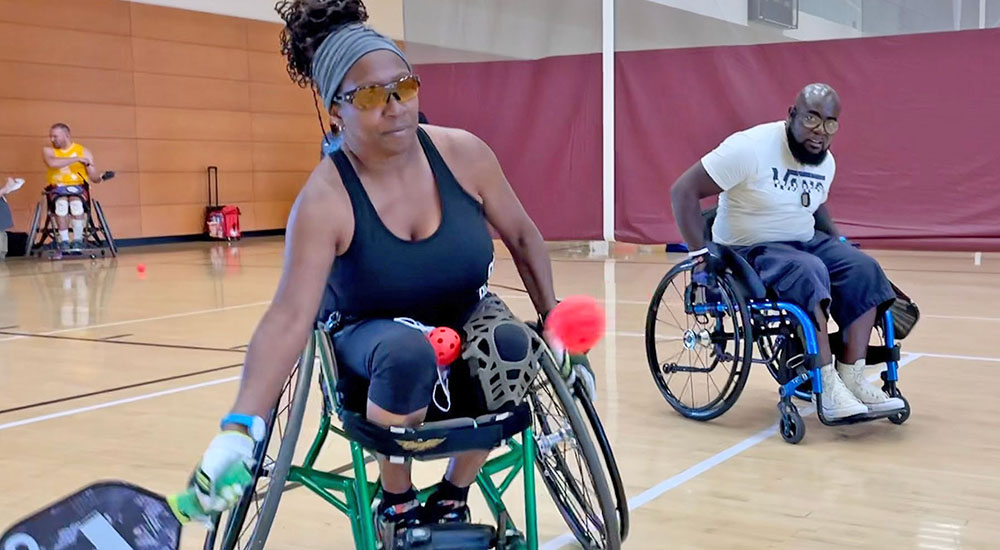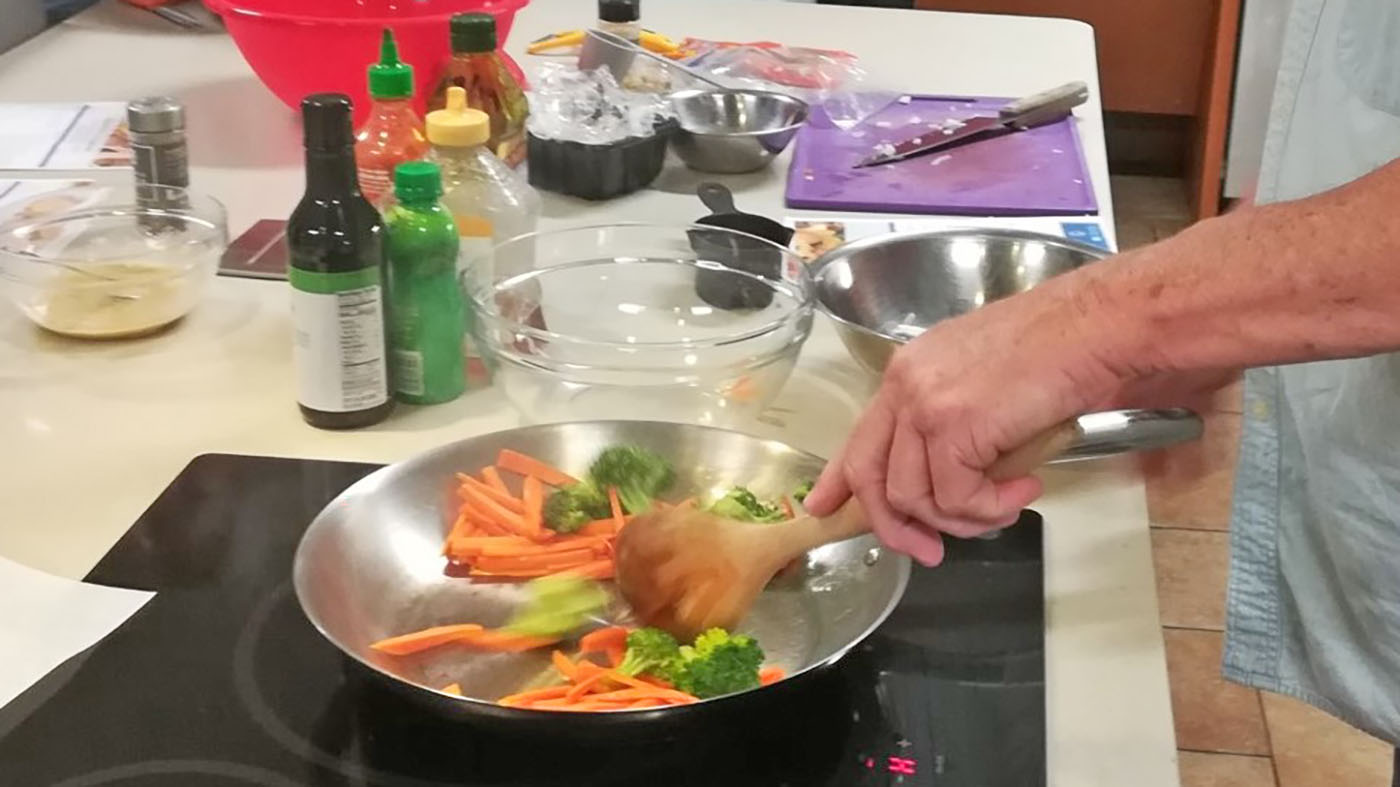Arizona is not synonymous with ice sports and the temperature this week is climbing to 113 degrees, but one of the most hotly anticipated events at the 41st National Veterans Wheelchair Games is the wheelchair curling exhibition.
Sending the rock to the house
The sport, growing in popularity thanks to the Winter Olympics, is making its debut at this year’s games. Wheelchair curling is an adaptation of curling for athletes with limited mobility. It is similar to able-bodied curling except the athletes deliver the rocks from a stationary wheelchair and there is no sweeping. Athletes can deliver rocks by hand while leaning over the side of the wheelchair or pushing a delivery stick.
Introducing the sport is Patrick McDonald, an Army Veteran and Paralympic athlete who instructs wheelchair curling at the Coyotes Curling Club in Tempe. His first Wheelchair Games was in 1991 and he was excited to help showcase curling this year. “I’ve been competitive my whole life, but I get more out of sharing this sport with other wheelchair athletes,” he said.
Army Veteran is “good at this”
One of the reasons for the increased popularity of curling is how easy it is to learn. “Anybody can do it,” said McDonald. “They can use their regular chairs; we have the rest of the equipment. Once they try it a few times, they always say how fun it was.”
John “Popcorn” Powell, representing VA North Texas Health Care System, was one of the most spirited Veteran athletes, encouraging his stone to “get home” as it sailed down the ice. The 73-year-old Army Veteran is no stranger to curling, having served as an alternate on the 2010 Paralympic Curling team in Vancouver.
“This event is played on ice and is a little bit like shuffleboard,” he said. “I am good at this. It’s my favorite sport and I’m excited it’s part of the National Veterans Wheelchair Games.”
Fun off the ice
Another sport making its exhibition debut in Tempe this year is pickleball. “It’s a cross between table tennis, badminton and tennis,” said Twila Adams, the 2019 “Spirit of the Games” winner and avid pickleball athlete. “The biggest difference is the 7-foot zone on either side of the net where you can’t volley it. We call that the kitchen.”
Adams has been playing pickleball five days a week for the last few years. She plays against wheelchair and able-bodied athletes alike. “I compete in about ten different sports and this is my top sport now,” she added. Instructing new Veterans at this year’s exhibition, Adams has had an opportunity to share the game with participants of all ages. “I’ve had young people and some Veterans as old as 90 who are out here playing pickleball and they have all love it.”
Exhibition sports into medals
While the exhibitions are a way to introduce Veterans to new sports, the goal is to have the exhibitions become medal sports. Previous exhibition sports like badminton and adaptive fitness are medal events for the first time in Tempe. At-home events like eSports have evolved to accommodate Veterans who aren’t able to travel to the games. eSports was first introduced at the 2019 games in Louisville and is now a medal event.
“I’m excited to have eSports at the Wheelchair Games. It’s providing Veterans with even more access to competition, no matter their function,” said Mike Luckett, the 2022 eSports gold medal winner.
The National Veterans Wheelchair Games was founded in 1981. It is the largest wheelchair sports rehabilitation event for Veterans with spinal cord injuries, amputations and other central neurological conditions in the United States. The event is presented each year by VA and Paralyzed Veterans of America. The National Veterans Wheelchair Games are held in a different city to expose wheelchair athletes to new experiences that boost self-confidence and independence.
Topics in this story
More Stories
VA promotes early nutrition intervention for chronic kidney disease with targeted programs like Heathier Kidneys Through Your Kitchen.
VA Research Advisory Committee on Gulf War Veterans’ Illnesses hosting Veteran Engagement Sessions in Phoenix for 1990-91 Gulf War Veterans.
Navy Veteran and president of the American Medical Association got a colonoscopy and encourages other Veterans to do the same.







